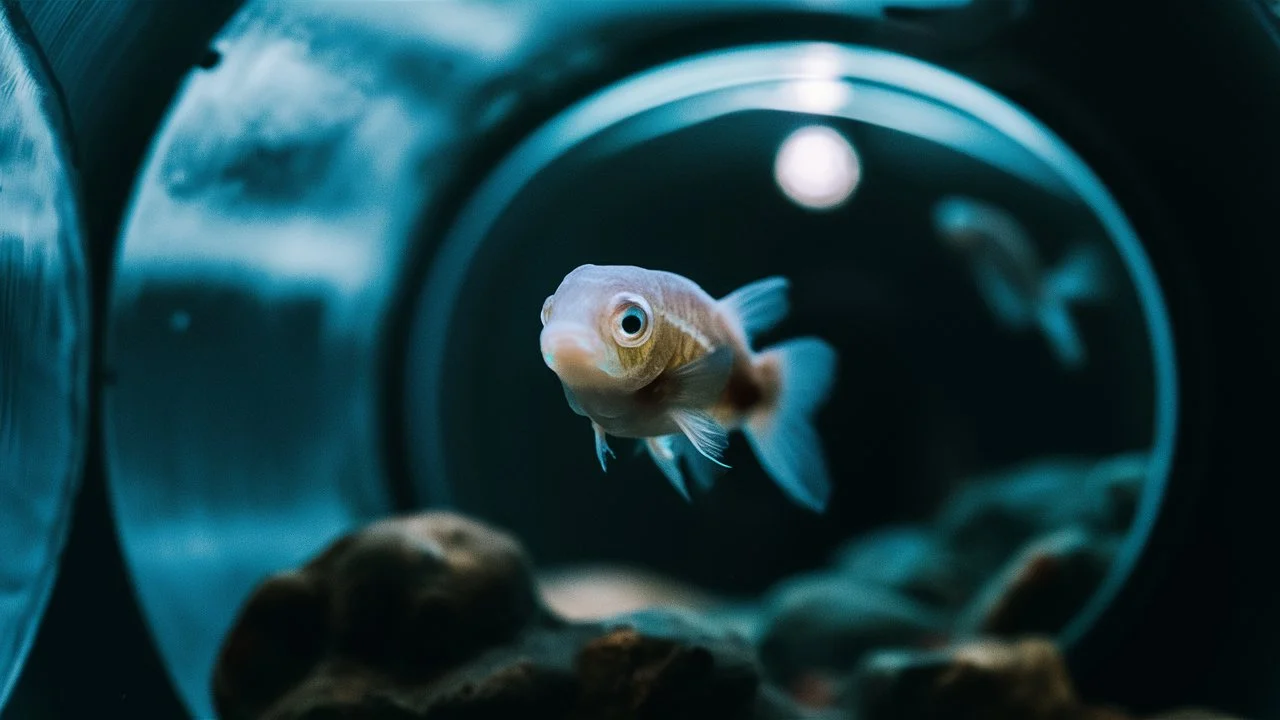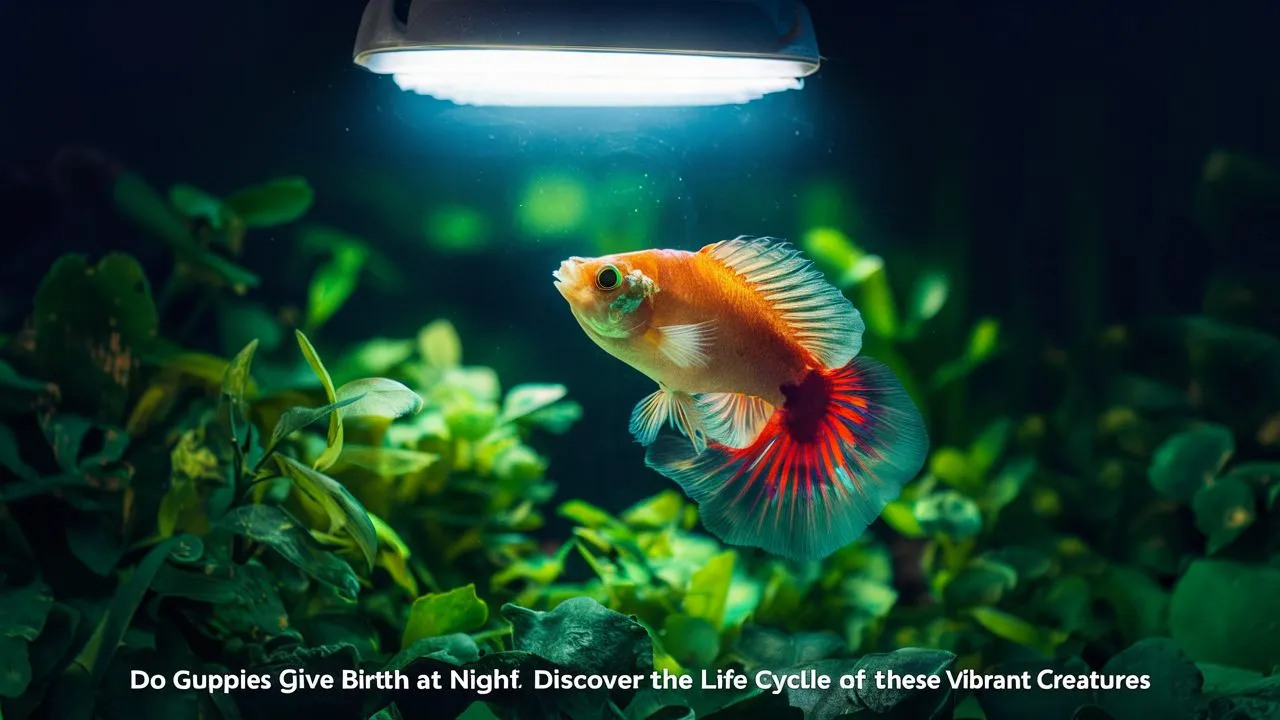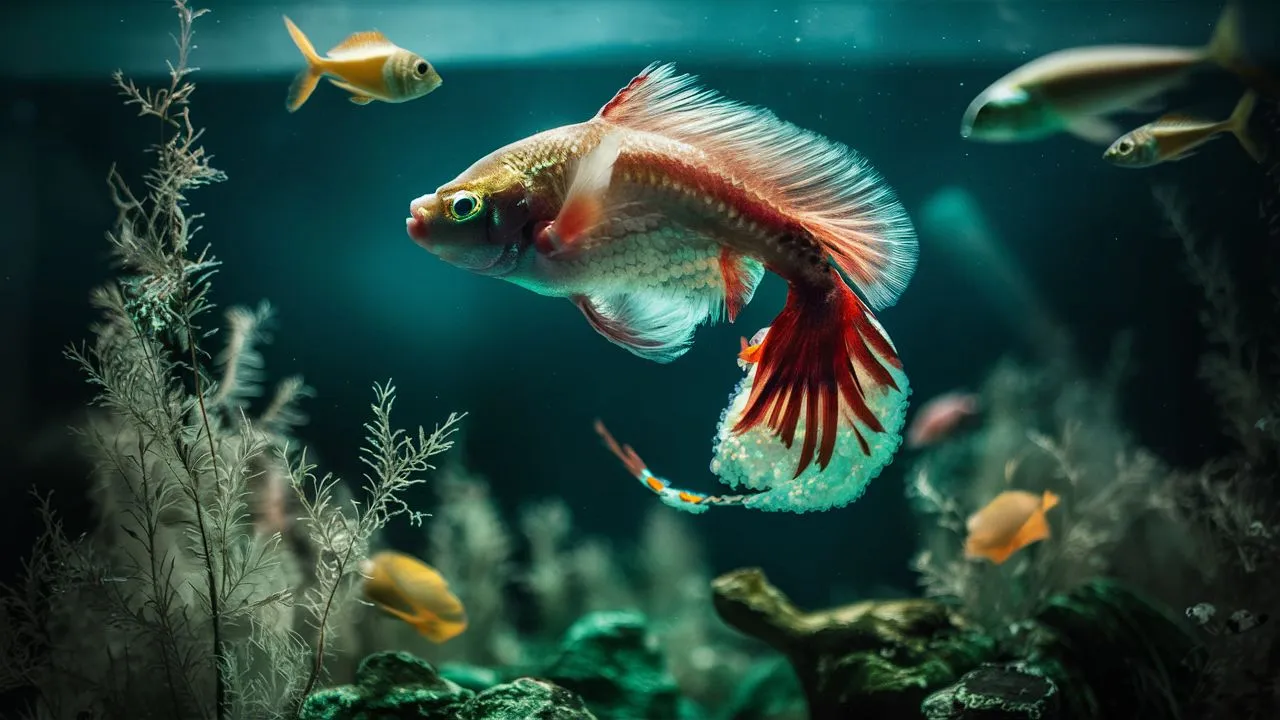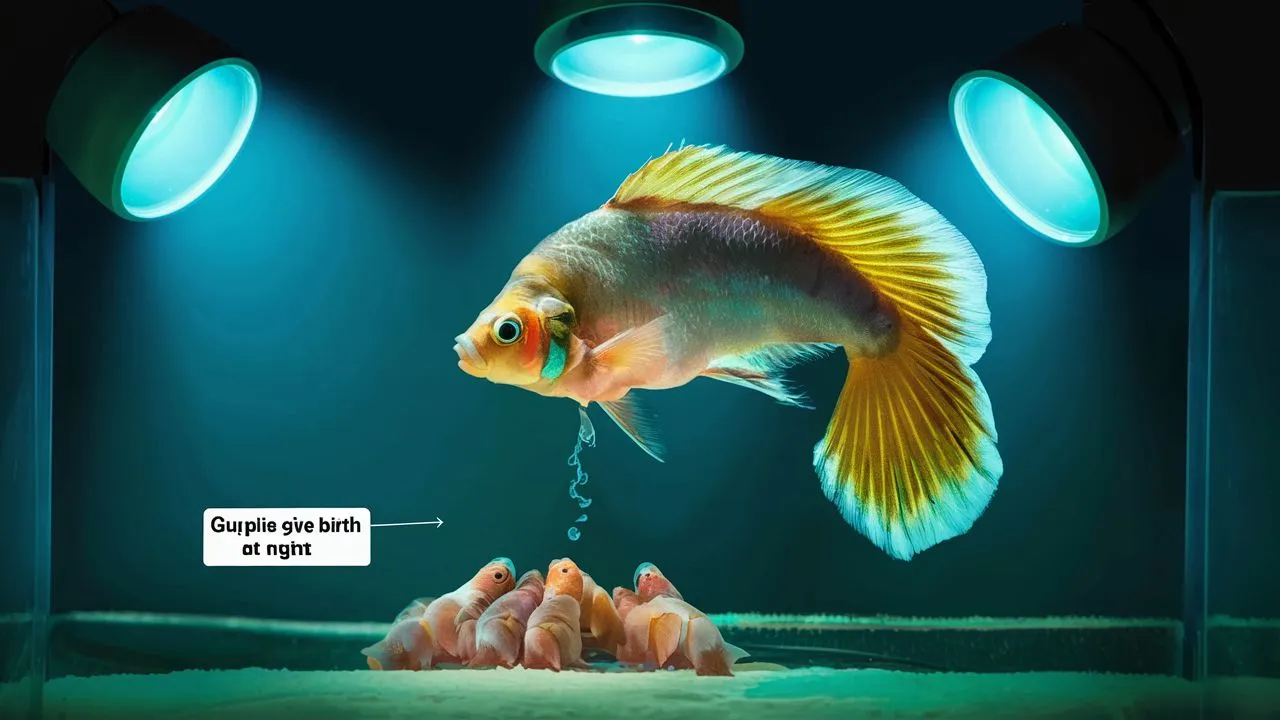Guppies are small and colorful fish that many people keep in their home aquariums. If you have guppies, you might wonder when they give birth. One common question is whether guppies give birth at night. Understanding the behavior of guppies during birth can help you take better care of them.
Yes, guppies do often give birth at night. Part of the reason is that it helps keep their fry safe from predators during the day.
Do guppies give birth at night?
Guppies are known to give birth anytime but many guppy owners have noted that their guppies tend to deliver at night. Why? Perhaps because predators are less and the environment is silent. In the wild, giving birth in darkness offers additional protection for the fry.
Briefly on Guppy Birth
Unlike other fish species, guppies are live bearers meaning they don’t lay eggs but instead support them inside until they give birth to living fry which swim freely. Time spent in birthing can vary from 2-6 hours depending on health status of the carrying mother and conditions within her environment. At times, female may interrupt delivery for several days before she resumes and delivers rest of her young.
Preparations for Giving Birth By Guppies During The Night
In case you suspect that your guppy is about to bear children late in the evening there are some steps that you can take in order to make sure both the mother and her kids remain safe. Firstly, put a lot of hiding places inside your aquarium such as bushy plants or small caves. This will offer young ones hiding places, thereby improving their chances of survival.

Understanding Guppy Gestation
Gestation takes between 21 to 31 days among different species of pregnant guppies.However there are certain factors which like dieting, health conditions and tank environments contribute greatly towards determining its exact length.Gestating females have much bigger bellies and a darker gravid spot near their anus than non-pregnant ones.
Signs Your Guppy Is About to Give Birth
To know when your guppy is close to giving birth, look for these signs:
- Large Belly: A pregnant guppy will have a big, round belly.
- Dark Gravid Spot: You may see a dark spot near the back of her belly. This is called the gravid spot.
- Restless Behavior: The guppy might swim around more or seem restless.
How to Help Your Guppy During Birth?
When your guppy is about to give birth, there are a few things you can do to help:
- Provide a Safe Space: Use a breeding box or separate tank to keep the mother and babies safe.
- Keep the Water Clean: Make sure the water is clean and at the right temperature.
- Reduce Stress: Keep the tank quiet and avoid sudden movements or loud noises.
What to Do After Birth
Once your guppy has given birth, take care of the mother and the baby fish (called fry):
- Feed the Fry: Give them special fry food or crushed flakes.
- Separate the Fry: Keep the fry in a safe area away from adult fish to avoid them being eaten.
Related reading:Why all my guppies died overnight?
When do Guppies Give Birth?
Guppies can give birth at any time of the day or night. The exact timing depends on various factors, including the guppy’s health, the tank environment, and the presence of other fish or predators. However, the general rule is that guppies give birth towards the end of their gestation period, usually around the 25-35 day mark.

Sexual maturity in guppies occurs at about 2-3 months. From then on, a female guppy will be able to breed and deliver fry every 30 days. Within each litter, there may be between twenty and fifty fry depending on the size and health of the mother fish.
How Do Guppies Act Before Giving Birth?
Below are a few signs that demonstrate the female guppy is preparing to reproduce:
- Enlarged belly – The tummy of the female guppy will appear distended or gravid as her embryos develop internally. This is often the most apparent indication that she will soon be giving birth.
- Reduced hunger pangs – During the days leading to labor, she may consume less food because of an already full stomach with developing fry.
- Isolation/hiding – The pregnant guppy starts searching for places where it can hide from other fish like plant cover or ornament hollows where she can give birth and protect the newborn fry in privacy
- Dark/saddlebands- Before delivery, some females get dark stripes called saddle bands on their sides; this happens due to hormonal change.
- Restlessness – She might become hyperactive as her pregnancy progresses. Sometimes you see her swimming around a lot more than usual or positioning herself while babies move into correct positions.
- Popping/spawning action- Occasionally you’ll notice pulsation of a gravid abdomen initiating work for fry descent during contractions of delivery.
- Day/night shifts – Most of these signs increase at dusk since majority of guppies give birth during night hours in order to camouflage themselves.
Recognizing Guppy Pregnancy Signs
Knowing when your guppy is about to give birth can help you prepare for the event and ensure the safety of both the mother and her fry. Some signs that your guppy is nearing labor include:
- A dark maroon or black gravid spot
- A boxy, squared-off abdomen
- Changes in eating habits
- Rapid breathing
- Shivering or shuddering motions

What if the Pregnant Guppy Doesn’t Give Birth?
After isolating a pregnant guppy for 24 hours without her delivering, it is better to release her back into the community tank. Keeping a pregnant guppy within isolation during long period can cause anxiety and may prevent fry development. When you place the female fish back in its artificial habitat, slightly warm up water will assist maturation process.
Can Two Guppies Share a Tank if they are Both Pregnant?
It is not advisable to keep two pregnant guppies together because this can lead to stress and possible conflict. Moreover, when both of them give birth at once, it becomes difficult to separate and safeguard the fries. Hence, it is better to have individual birthing tanks for every pregnant guppy.
Do Guppies Eat Their Babies?
Yes, guppies do eat their babies. After giving birth, the adult guppies, including the mother, might eat the baby guppies (called fry). To protect the fry, it’s a good idea to separate them from the adult guppies by using a breeding box or a separate tank with plenty of hiding spots.
How Do You Take Care of Baby Guppy Fish?
Taking care of baby guppy fish (fry) involves several important steps to ensure they grow healthy and strong. Here’s a simple guide to help you:
Separate the Fry:
-
- Use a breeding box or a separate tank to keep the baby guppies safe from adult fish, which might eat them.
Maintain Clean Water:
-
- Keep the water clean by performing regular water changes. Clean water helps prevent diseases and promotes healthy growth.
Provide Proper Filtration:
-
- Use a gentle filter in the tank to keep the water clean. Make sure the filter isn’t too strong, as it can harm the fry.
Feed the Fry Properly:
-
- Give them finely crushed fish food or special fry food. Feed small amounts several times a day to ensure they get enough nutrients.
Provide Hiding Spots:
-
- Add plants or decorations to the tank to give the fry places to hide and feel secure.
Monitor Water Temperature:
-
- Keep the water temperature between 75-80°F (24-27°C) to provide a comfortable environment for the fry.
Avoid Overcrowding:
-
- Make sure the tank isn’t too crowded. Overcrowding can lead to poor water quality and stress for the fry.
What if a Guppy is Taking Longer to Give Birth?
If your guppy’s gestation period is extending beyond 31 days, it could be due to stress or poor water conditions. In such cases, it’s best to consult with an aquatic veterinarian for advice.
If a guppy is taking longer to give birth, it can be a sign of several things, but here are some steps you can take to help:
Check the Environment:
-
- Ensure the water temperature is between 75-80°F (24-27°C). Cooler water can slow down the birthing process.
- Make sure the water is clean and the tank is well-maintained.
Reduce Stress:
-
- Provide a calm environment by reducing noise and avoiding sudden movements around the tank.
- Add some hiding spots, like plants or decorations, where the pregnant guppy can feel secure.
Observe for Signs of Distress:
-
- Look for signs of stress or illness, such as rapid breathing, clamped fins, or lack of movement.
- If the guppy seems distressed, consider separating her into a breeding box or another tank to give her more privacy.
Ensure Proper Nutrition:
-
- Feed the pregnant guppy a balanced diet to keep her healthy and strong during the birthing process.
Patience:
-
- Sometimes, guppies take longer to give birth due to natural variations in their birthing process. It’s important to be patient and give her time.
Seek Advice:
-
- If you are concerned or if the guppy shows signs of severe distress, consider seeking advice from a veterinarian or a professional aquarist.
Conclusion
In conclusion, while guppies can give birth at any time, many tend to do so at night. Knowing this and understanding the signs of impending birth can help you prepare and ensure the safety of both the mother guppy and her fry. With the right care and attention, you can enjoy the unique experience of watching your guppies give birth and raise their young.
Whether you’re a seasoned guppy keeper or just starting your aquarist journey, understanding the reproductive behaviors of these fascinating fish can enrich your aquarium experience. And remember, the question isn’t just do guppies give birth at night but also how you as the aquarist can best support them during this remarkable process.

4 thoughts on “Do guppies give birth at night?”